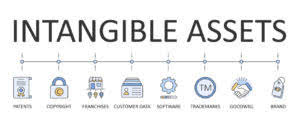
Digital transformation is redefining the roles and responsibilities of accountants, shifting their focus from repetitive tasks to high-value activities. Automation now handles transactional tasks, allowing accountants to take on strategic advisory roles. By analyzing real-time financial data, they provide insights that guide business decisions, optimize budgets, and forecast future trends. Process automation reduces the need for manual data entry, ultimately reducing the risk of human error. This further increases efficiency, saving time and leading to better-informed business decisions.

Problem 2: Lack of Real-Time Insights
- Bookkeeping has come a long way from the days of paper ledgers, spreadsheets, and a shoebox full of receipts.
- Before implementing DocuWare’s digital capture and automated workflow, Culinaire’s central accounting office dealt with a large volume of paper documents.
- Doing so can ensure you comply with the government’s regulations for submitting digital tax records.
- Digital bookkeeping isn’t just about saving time – it’s about giving businesses the flexibility to scale and adapt in a fast-moving world.
- Access controls, encryption and authentication are features of a document management system that help maintain the confidentiality and integrity of financial documents.
- The traditional methods of managing financial data through the use of spreadsheets and manual inputting are shifting to keep up with the demands of modern-day technology.
- The results of these transformations are immediate and set a foundation for sustained competitive advantage and scalability.
Internally created and incoming financial documents are managed, shared and stored in a central location in the cloud or on-premises. This enables authorized users to access documents and manage accounting workflows from the office, remotely or on the road. It also helps ensure timely payments are made and records are archived according to federal, state and industry standards. A digital bookkeeping system refers to the entire software platform used to manage financial transactions and records.
- This blog delves into the key technologies, challenges, and processes driving digital transformation in finance and accounting.
- Digital transformation in accounting is no longer a luxury—it’s a necessity.
- Additionally, knowledge of accounting standards and regulatory frameworks will ensure compliance while leveraging digital tools for enhanced accuracy and efficiency.
- Cloud accounting also provides up-to-date and accurate information quickly, eliminating the need for manual data entry.
- Organizations evaluate tools such as AI-driven systems, RPA, blockchain, cloud platforms, and data analytics solutions to address specific pain points and achieve their defined goals.
Technical Proficiency in Emerging Financial and Accounting Technologies

The process of digital transformation in finance and accounting is a comprehensive journey that involves a step-by-step approach to seamlessly integrate new technologies and optimize operations. This process unfolds in five distinct phases, each contributing to more efficient workflows, improved decision-making, and better regulatory compliance. Below is a detailed breakdown of each phase, along with the key activities involved in their successful execution. Data analytics tools process vast datasets to deliver actionable insights for both finance and accounting teams. In finance, these tools enable better forecasting, risk assessment, and investment strategy formulation by identifying trends and patterns. In accounting, big data helps in detecting irregularities, optimizing expense tracking, and improving cost allocation.
Bill pay automation
- Cloud-based accounting software has the benefit of being accessible from anywhere, across devices.
- By leveraging the power of RPA, accountants and CPAs can do more with less and increase their overall efficiency.
- Information is also readily available without spending the necessary time looking for files.
- Digital bookkeeping refers to the process of managing financial records using digital tools rather than traditional pen-and-paper methods.
- Very often, this data is provided in real-time, so accountants can make educated business decisions even faster.
In addition, accounting processes are initiated more quickly and bottlenecks are eliminated. With digital accounting, you can save time processing online transactions, preparing reports, and compiling facts and figures in minutes. It also automates previously manual tasks, reducing the cost of the business. Many companies use online accounting and other finance software to manage their financial data. In Online Accounting fact, more than 120,000 small and midsize businesses use BILL, processing over USD 140 billion in payments annually. Larger businesses may also hire virtual bookkeepers, but they’re more likely to have their own internal department for accounting services.
At Walker Advisory, we offer more than just accounting solutions; we provide actionable insights to enhance your bottom line. Most of this will focus on boxing documents to get scanned with their retention times after removing all staples and paperclips. Some of these preparatory steps will help smooth the process and cut down on potential what is digital bookkeeping costs. This includes testing all automated processes, report generation, and integrations with other business systems. Failure to comply with tax regulations lead to penalties, fines, and creates a negative image of your company.

They can oversee the automation process to make minor improvements or make sure all the transactions are processed properly. Long work hours, repetitive https://www.bookstime.com/articles/gaap-vs-ifrs work, and fatigue might lead to overlooking important details and transactions when bookkeeping. Manual bookkeeping comes with challenges that might prevent companies from reaching optimum efficiency. Optimizations help enhance the system’s overall efficiency to provide a smoother user experience. It also helps to identify inefficiencies and implement improvements to resolve them. The solution you choose needs to be user-friendly and offer the features and functionality your business needs.


Instead of relying on paper or clunky spreadsheets, you use software to automate, streamline, and store your bookkeeping digitally. In this guide, we’ll break it down in plain English and show you how we make digital bookkeeping stress-free at Bright Beany Accounting using smart tools like Xero, Dext, and Hubdoc. There’s no argument, that digital accounting is the way to go for organisations since ease of doing business has evolved drastically over the years. Once you find a trustworthy bookkeeper to work with you in-office or remotely, create a solid contract or employment details to ensure the work goes according to your expectations.
